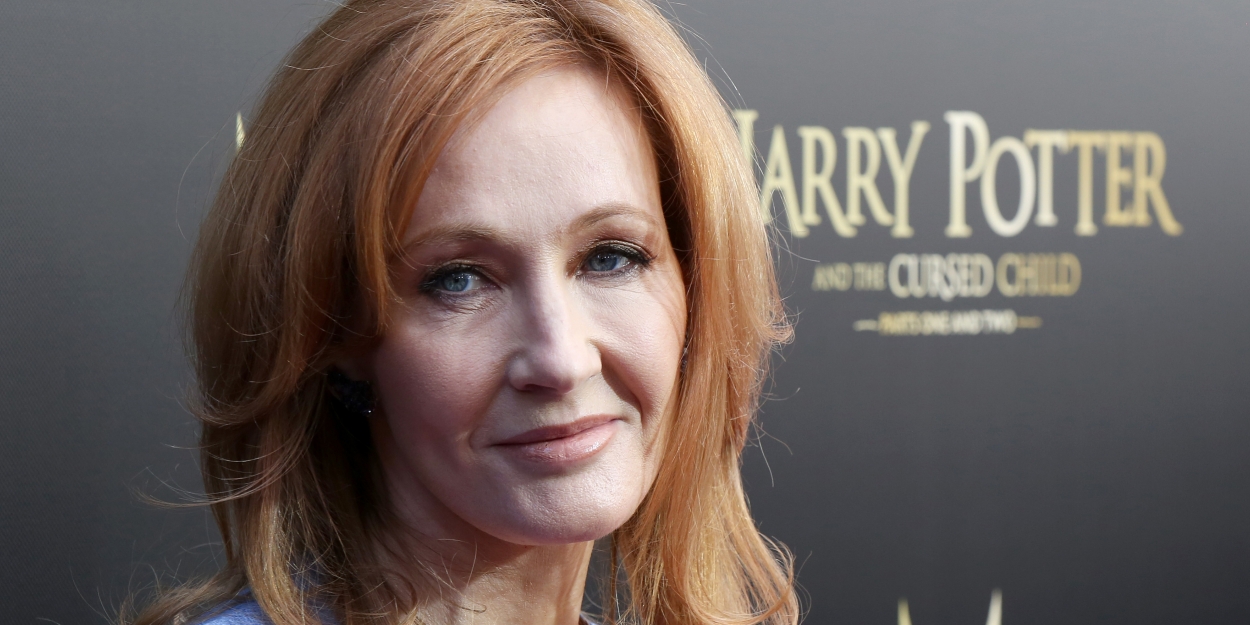Critics & Fans Give Tepid Response to J.K Rowling TERF Play at Edinburgh Fringe
Performances continue in Edinburgh through August 25th, 2024.

As BroadwayWorld previously reported, TERF - the play taking on J.K. Rowling for remarks deemed by many to be transphobic, was one of the most buzzed about shows heading into the festival. The production received mainstream press in outlets around the globe.
Despite the controversy, Rowling continues to work on a variety of projects including a new book and audiobook about the Harry Potter Wizarding World, a TV series based on the franchise in development at HBO, productions of the Potter stage show Cursed Child worldwide (including now licensing in schools), and the North American tour of the same beginning performances in Chicago in September.
Between the time the play was announced and began performances, Rowling doubled down on many of her statements, and caused significant controversy after accusing Olympic boxer Imane Khelif (of Algeria) - who was assigned female at birth - of being transgender. Rowling is now facing a lawsuit in France naming her and Elon Musk in regards to those comments.
The play takes on J.K. Rowling, the billionaire creator of the Harry Potter universe and the most vocal celebrity supporter of the gender-critical movement, which seeks to ban transgender women from women-only spaces and services. TERF was penned by American playwright and screenwriter Joshua Kaplan, who most recently worked on Max’s Tokyo Vice. (Max is the future streaming home of the Harry Potter TV series.)
"The premise is that Daniel, Emma, and Rupert organize an intervention," Kaplan said to THR. "There are then interspersed flashback scenes that serve to explain how Rowling developed her rigid views about gender."
But did audiences think the show lived up to the hype? On the Edinburgh Fringe review site, most comments were mixed to negative. "I really wanted to enjoy this - but I didn't. The actors are really good and it's clear that everybody involved want to (and would be great at) a tense character study - but they got caught on the idea of it being about JKR.and got drowned by that. It flounders under its own weight. One to miss - but I'll keenly await what comes next after they detatch from this gimmick..." wrote one audience member.
"It’s badly written, populated by caricatures and I have absolutely no idea of what point it was trying to make. One to avoid..." wrote another Fringe attendee. Other audience members wrote despite the play branding itself with a trans flag, it missed the mark on allyship.
What did the critics think?
Dominic Cavendish, The Telegraph: I’d hesitate to suggest that the show warrants full houses, but even so, fitful and flawed as it is, it does the public no little service in daring to set on stage a topic that even senior politicians fight shy of addressing. And it has the makings of something decent (possibly more televisual than theatrical). That said, the main disappointment is that having convened the main parties at a fancy restaurant (and there’s a disclaimer at the outset, intoned by a spoof Rowling herself that we’re watching fiction), there’s not much sustained thrashing out of the scientific and societal questions, a showdown complete with argument and recrimination.
Allan Radcliffe, The Times: The problem here is that, rather than mining this premise for all its worth, Kaplan muddies the waters with flashbacks to earlier events in Rowling’s life, apparently to add depth and motivation, but in fact breaking the dramatic tension. Although the central point about people being complex individuals rather than representatives of a social group or ideology is clearly made (if hardly revelatory), at 80 minutes, the show ends up an overlong and rather messy slog rather than the sharp satire of the online age it could have been.
Mark Fisher, The Guardian: There is no conflict, just mutual irritation. Piers MacKenzie as Daniel is as fractious as the rest of them, in a clunky production that is as high on good intentions as it is low on impact.
Sally Stott, The Scotsman: Having been forced to change venues, writer Joshua Kaplan’s depiction of a plummy voiced JK Rowling meeting her three brattish ‘children’ (members of the Harry Potter cast), to discuss her well-documented tweets, has some interesting points to make about posturing on Twitter (now X) while real life happens elsewhere, but it struggles to expand a Shoreditch House chat into a one hour twenty-minute play. As they’re served food by an anonymous figure with their mouth taped shut, it’s not a subtle set-up – less interested in exploring the real-life experiences of those involved than creating its own ‘intervention’.

Videos

